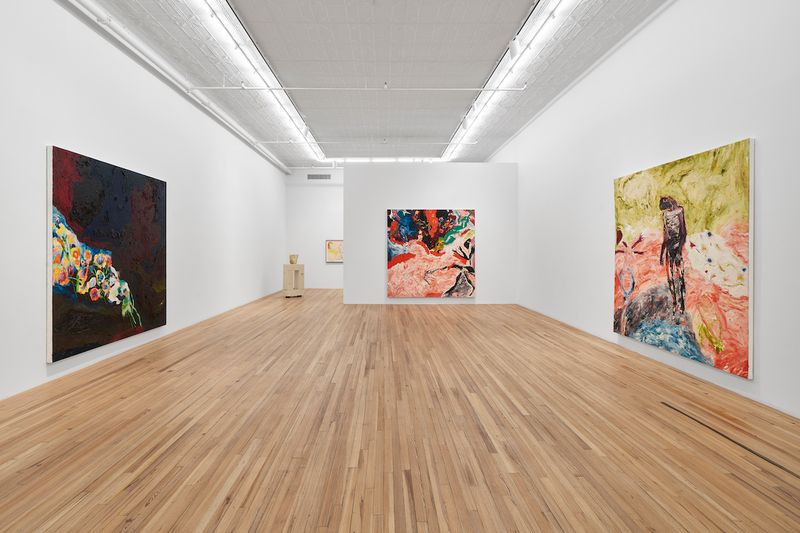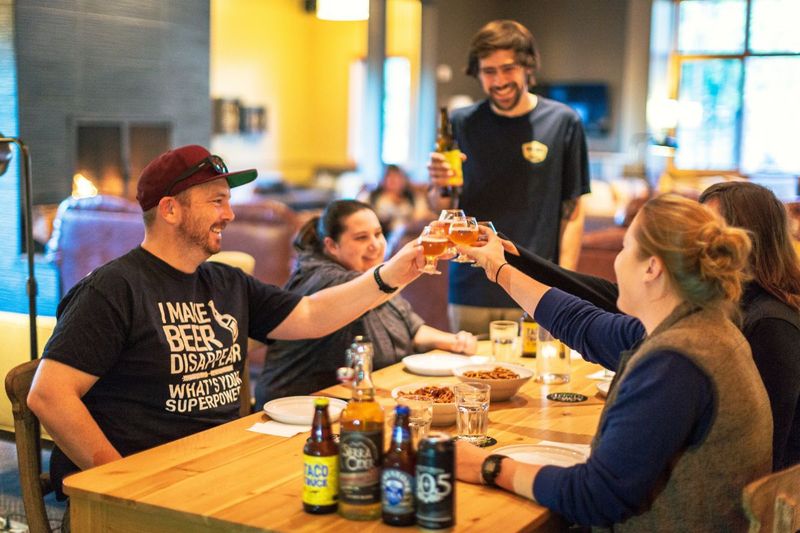In a world where social harmony often takes precedence over personal preferences, Americans are sometimes found navigating situations where they pretend to enjoy certain things just to avoid seeming difficult. This article delves into ten such instances, highlighting the lengths people go to in order to maintain social peace.
1. Small Talk at Networking Events

“Ah, the dance of words with strangers!” For many, networking events are less about genuine connection and more about superficial conversation. The art of small talk, filled with weather discussions and insincere compliments, is a skill reluctantly honed.
Despite the lack of enthusiasm, smiling and nodding remain essential. Attendees pretend to be intrigued by repetitive questions about careers or the latest sports scores, all to avoid rocking the social boat.
In reality, many would prefer deeper conversations or even silence. The charade continues, driven by the pressure to network effectively.
2. Office Birthday Parties

“Who doesn’t love cake and awkward singing?” Office birthday parties are rituals that employees often pretend to enjoy. The obligatory gathering around a cake, followed by off-key renditions of “Happy Birthday,” feels more like a chore than a celebration.
Yet, refusing to participate could label one as antisocial. So, with feigned enthusiasm, colleagues clap and cheer, masking their indifference.
While some genuinely enjoy the break, others are merely counting down the minutes until they can return to their desks. The blend of forced merriment and sugary treats epitomizes the facade maintained in workplaces.
3. Listening to Hold Music

“Your call is important to us,” promises the automated voice. Yet, as minutes tick by, the repetitive music becomes a test of patience. Many pretend to be patient, fearing that expressing frustration might impact the service received.
Hold music, often an odd mix of tunes, serves as the backdrop for this charade. People multitask or zone out, desperately seeking distraction from the monotonous melody.
Despite the annoyance, they endure, hoping the call will eventually connect. The unspoken rule of phone etiquette demands patience, whether genuine or feigned.
4. Watching Award Shows

“And the award goes to…” Amidst glitz and glamour, many find award shows tedious. Yet, they pretend to be captivated, eager to partake in Monday’s water cooler conversation.
The anticipation of surprise wins or shocking speeches draws viewers in, but not all are genuinely interested. Instead, they scroll through social media or chat with friends, feigning engagement.
For those uninterested in celebrities, the shows are background noise. The lure of fashion critiques and trending hashtags keeps them tuned in, but the pretense remains thinly veiled.
5. Eating Kale

“Healthy never tasted so bland.” Kale, the poster child of superfoods, finds its way into American diets with mixed enthusiasm. Many pretend to enjoy it to fit the health-conscious narrative.
The leafy green, often described as bitter, is masked with dressings or blended into smoothies. Social pressure to appear health-savvy keeps kale on the menu.
While some acquire a taste for it, others merely endure its presence. The pursuit of wellness sometimes outweighs personal preference, leading to a begrudging acceptance of kale’s dominance in trendy diets.
6. Mandatory Fun Days

“Let’s all have forced fun!” Mandatory fun days at work, complete with trust falls and obstacle courses, are met with mixed feelings. Employees often pretend to enjoy these outings to maintain team spirit.
The promise of relaxation turns into an exercise in patience. Participation is sometimes feigned, as colleagues bond over shared discomfort.
While some genuinely appreciate the break, others long for a regular workday. The facade of enjoyment is upheld to avoid being seen as unsupportive or aloof.
7. Concerts for Bands They Don’t Like

“Rock on… or not.” Attending concerts of bands that don’t resonate is a social compromise many make. Pretending to enjoy unfamiliar music keeps friendships intact.
The energy of the crowd is palpable, but personal disinterest lingers. Yet, clapping and dancing are obligatory, to avoid dampening the mood.
In the end, the shared experience, rather than the music, creates memories. Maintaining the illusion ensures harmony among friends, despite differing tastes.
8. Brunch with Acquaintances

“Brunch, where breakfast meets lunch in awkward company.” Gathering with acquaintances for brunch is often more about maintaining social ties than enjoying the meal.
The conversation can feel forced, as small talk dominates. Despite this, attending brunch is a ritual many uphold to avoid seeming antisocial.
While the food may be enjoyable, the company might not always be. The social expectation to participate often overrides personal preference, creating a facade of enjoyment.
9. Pretending to Like Art

“What does it mean?” Art galleries, filled with abstract works, often leave visitors puzzled. Yet, many pretend to appreciate the art to avoid appearing uncultured.
Nodding and contemplating are common, as attendees strive to seem knowledgeable. The fear of judgment drives the facade of understanding.
Despite genuine curiosity, not everyone connects with the art. The pressure to conform keeps the pretense alive in cultural circles.
10. Tasting Craft Beers

“Hoppy, bitter, or just plain confusing.” Craft beer tastings are social events where attendees often fake enthusiasm for brews they dislike.
The complex flavors can be overwhelming, yet nods of approval are exchanged. Social norms dictate participation, even if the taste doesn’t appeal.
For some, the experience is more about camaraderie than the beer itself. Pretending to enjoy each sip ensures smooth social interactions, even when the palate protests.
Hi all, I am Sidney, an accountant, a hobbyist photographer, and a mother to two sweet girls who are my motivation. I love sharing the tips and tricks I gained all these years I’ve been a mother. I hope it will help you!

